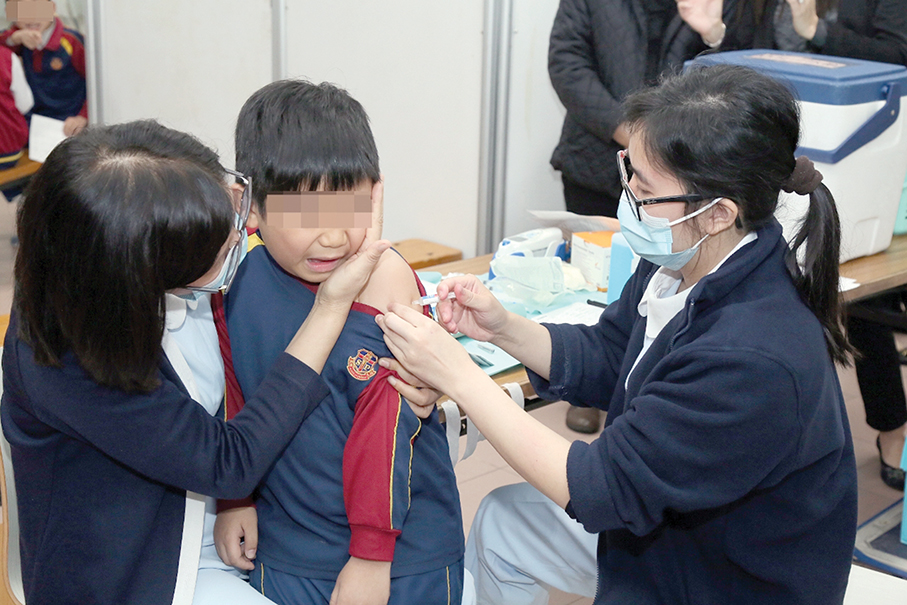Parents are advised to keep their children’s vaccinations up to date and ensure that they are jabbed before travelling, as tourism resumes worldwide and there is a risk of many infectious diseases spreading or re-emerging, the Health Bureau (SSM) said in a statement on Wednesday.
The World Health Organisation (WHO) has designated the last week of April as International Vaccination Week.
This year’s International Vaccination Week, the statement said, aims to promote vaccination to protect people of all ages, especially children, from serious illness or disability caused by vaccine-preventable diseases, and to advocate for governments to provide better quality vaccination services to their populations.
According to the statement, Macau’s immunisation programme is comparable to that of other advanced countries and regions in the world, with a wider coverage of free vaccines and a more comprehensive range of vaccines than in neighbouring regions, including vaccines against 13 diseases, and free annual flu vaccinations for people at risk of influenza.
The Health Bureau mentioned that misinformation about the ineffectiveness and unsafety of vaccines has been circulating from time to time, leading to misunderstandings and suspicions among parents about vaccinations, among which the mumps, measles, rubella (MMR) vaccine is commonly associated with autism.
According to the WHO and many studies in different places, it has been confirmed that the MMR vaccine is not associated with autism, the statement insisted.
The Health Bureau emphasised that its vaccines are procured in accordance with scientific and stringent procedures, and that the efficacy and safety of vaccines in Macau meet the stringent standards of the WHO, the US Food and Drug Administration or the European Union’s Medicines Control Agency.
The statement noted that most common side effects of vaccines are mild and transient benign reactions such as low fever, fatigue and redness, swelling and pain at the vaccination spot. For example, the statement said, the influenza vaccine may cause mild swelling and aching at the vaccination spot, but it is effective in reducing the risk of serious illness and death from influenza in the elderly, children, pregnant women, and people with chronic diseases.

This undated and pixelated handout photo provided by the Health Bureau yesterday shows a nurse vaccinating a young boy.







